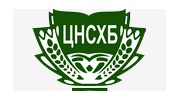Sharapov S. V. Peasantry of collective farms: Subsistence ethics during the Great Patriotic War (based on the materials from the Novosibirsk Region) // The Russian Peasant Studies. 2024. V.9. №3. P. 169-184.
DOI: 10.22394/2500-1809-2024-9-3-169-184
Annotation
The article considers the social-economic behavior of the collective-farm peasantry during the Great Patriotic War. Under the strengthening mobilization pressure, the imperative of survival still determined the peasant attitude to work, economy, close social circle and higher authorities. The situation in collective farms differed, since their economy depended on the labor supply of lands as subject to taxes in kind, which determined differences in the peasant attitude to work on the collective farm. In the most unfavorable circumstances, participation in the artel work promised the peasant nothing else than super-intensive work without sufficient payment. Although peasants’ behavior could be considered adaptive in general, unbearable conditions in economically unpromising collective farms forced peasants to practice passive resistance (from poor work and missing deadlines to illegal actions). The limits of tolerance towards peasant disobedience kept changing in the 1930s — 1940s; however, their weak supervision in the countryside did not allow the authorities to further reduce these limits during the war. The peasant community morally justified illegal actions as often helping to save themselves from hunger. The persistent peasant violations of the boundaries of legality greatly reduced the authorities’ ability to control the collective farm economy.
Keywords
Collective-farm peasantry, subsistence ethics, Great Patriotic War, agrarian policy.
About the author
Sharapov Sergey V., PhD (History), Researcher, Institute of History, Siberian Branch of the Russian Academy of Sciences. Nikolaeva St., 8, Novosibirsk, 630090.
E-mail: This email address is being protected from spambots. You need JavaScript enabled to view it.























